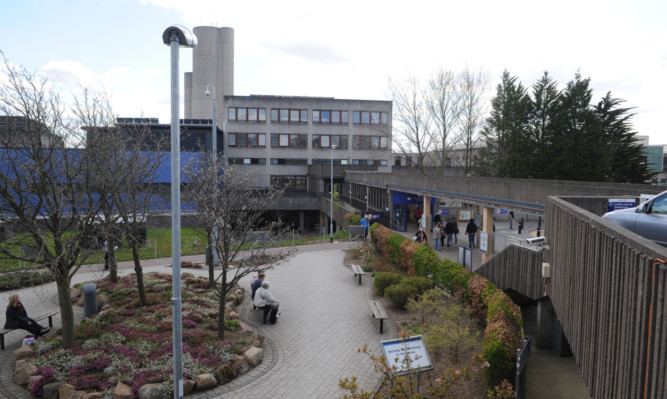The Scottish Government has pleaded with NHS bosses to resume talks with union chiefs and prevent strike action from blighting vital health services in Tayside.
As many as 120 porters at Ninewells and Royal Victoria Hospital will stage the first in a series of industrial actions planned by Unite within days.
Health bosses have said they remain keen to continue talks but have launched a scathing attack on union chiefs, claiming they have misled their members and put patient services at risk.
The strike could pose a threat to services at both hospitals perhaps most seriously at Royal Victoria which is a specialist facility for care of the elderly.
The Scottish Government has weighed into the row which has blown up over claims staff are owed £6 million in pay pleading with the firmly entrenched parties to reconcile.
A spokesman said: “We would urge NHS Tayside and Unite to continue to work to find a local resolution.”
With the Unite union determined not to stop until NHS Tayside backs down, that appeal could fall on deaf ears and industrial action may last for weeks or even months.
The health board now has less than a week to shape contingency plans to prevent patients and services from suffering during a minimum of five mass walk-outs.
Senior officials have said the strike will have “no impact” on patient services, though the NHS’s own jobs portal says of porters that “without them hospitals could not function”.
NHS Tayside’s director of human resources George Doherty said the health board was “very disappointed at Unite’s decision to take industrial action”.
He said it was “concerning” Unite was proposing action that could “impact on the care of patients who rely on our services”.
Mr Doherty said: “While we respect the democratic right of staff to take action, patients must remain our overriding consideration and we will keep services running to ensure our doctors and nurses can treat and care for our patients at Ninewells and Royal Victoria Hospital.
“The public, our patients and their families should be reassured that our contingency plans will ensure all critical support services are maintained.”
Mr Doherty praised the work of the health board’s porters and said it remained “keen to find a constructive way forward”.
He said the board would be meeting porters in the coming days to talk to them about their pay and explain to them how their salary level had been agreed.
In the same statement, however, he was highly critical of the Unite union and questioned the leadership and advice it has provided to its members.
Unite has said porters at the two hospitals have been underpaid for a decade, receiving a lesser salary than porters at other Tayside hospitals, but that position has left the health board bemused.
“We need to be clear that the job description for this group of staff was developed with, and agreed by, the trade unions concerned,” Mr Doherty said.
“The grade of the post was determined through a panel process which involved the trade unions as full partners.
“This included a detailed job review of the role of this group of porters, again undertaken in partnership with trade union colleagues.
“The Band 1 porter role is a different job description from other porters across NHS Tayside.
“The job description of these other porters carry more responsibility and were therefore graded at a higher banding through that same transparent process, again undertaken with our trade unions.”
Mr Doherty said he was confident the process had been “robust, transparent and correct”.
